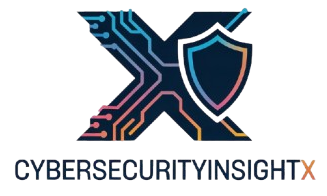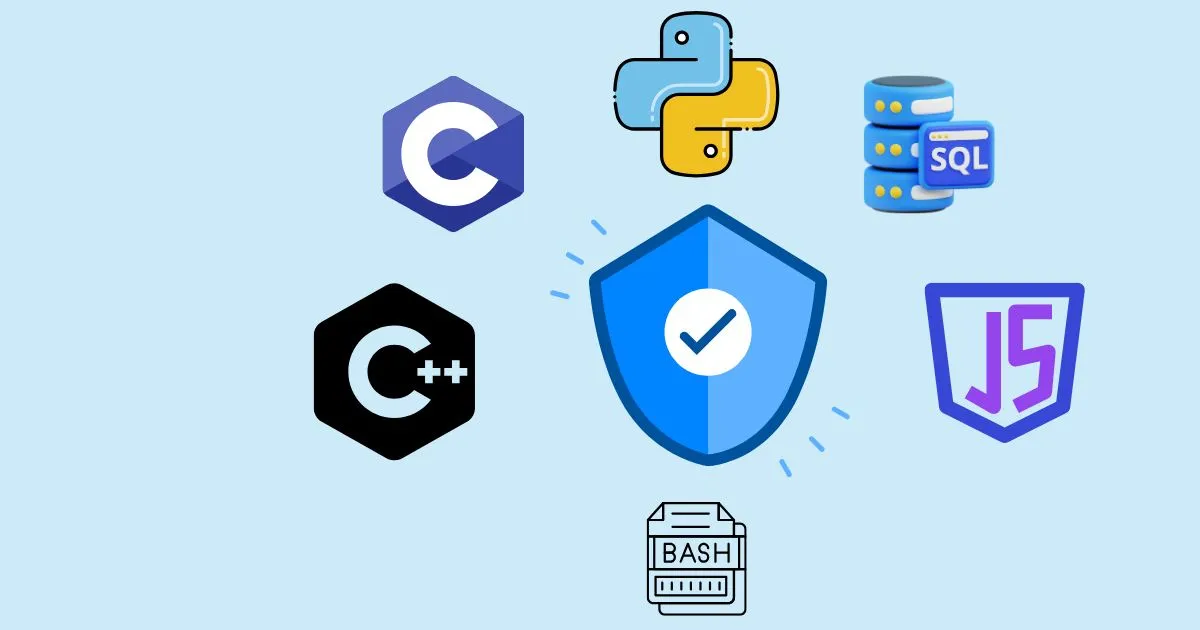The Ultimate Guide to Cybersecurity Programming Languages in 2025
Master these coding languages to become a cybersecurity expert faster!
Cybersecurity Programming Languages are becoming more crucial than ever in 2025. With the rise of cyber threats, companies are seeking professionals who master the right coding skills. If you’re looking to build a strong cybersecurity career, understanding the top cybersecurity programming languages is essential.
In this guide, we will explore the best programming languages for cybersecurity, why they are important, and how you can start learning them today.
Table of Contents
Mastering Cybersecurity Programming Languages in 2025: A Complete Guide
Why Cybersecurity Programming Languages Matter
Cybersecurity programming languages empower security professionals to identify vulnerabilities, build defensive tools, automate security processes, and develop secure applications.
Without the right programming knowledge, it becomes nearly impossible to analyze threats or develop efficient security solutions.
Cybersecurity Programming Languages also enable ethical hackers to perform penetration testing and develop scripts that detect and patch vulnerabilities before malicious actors can exploit them.
Top Cybersecurity Programming Languages to Learn in 2025
Choosing the right cybersecurity programming language depends on your career goals. Here are the best options:
1. Python
Python is the number one programming language for cybersecurity. It’s beginner-friendly, versatile, and has countless libraries like Scapy, Nmap, and Requests for penetration testing, malware analysis, and automation.
Key Uses:
- Building security tools
- Automating tasks
- Developing penetration testing scripts
2. C and C++
C and C++ are critical cybersecurity programming languages because they provide low-level access to memory and system resources.
Understanding these languages helps security experts exploit or protect software at the hardware level.
Key Uses:
- Reverse engineering
- Malware analysis
- Exploit development
3. JavaScript
JavaScript is essential for web security. Cyber attackers often exploit JavaScript vulnerabilities in web applications.
Mastering JavaScript allows cybersecurity professionals to better understand and prevent attacks like XSS (Cross-Site Scripting).
Key Uses:
- Web application security
- Cross-Site Scripting (XSS) prevention
- Client-side security analysis
4. SQL
SQL remains one of the most targeted elements in cyberattacks. SQL injection is a classic method used by hackers to access databases.
Therefore, understanding SQL is crucial for securing sensitive information.
Key Uses:
- Database security
- Preventing SQL injection attacks
- Secure data management
5. Bash and Shell Scripting
Bash and Shell scripting are essential cybersecurity programming languages for automation on Linux systems.
They help automate tasks like network scanning, log analysis, and vulnerability testing.
Key Uses:
- Task automation
- System monitoring
- Security audits
How to Start Learning Cybersecurity Programming Languages
Mastering cybersecurity programming languages takes dedication, but here are a few tips to accelerate your learning:
- Start with Python: It’s the most beginner-friendly.
- Practice coding daily: Hands-on experience is key.
- Take cybersecurity courses: Focused programs help connect coding to real-world security problems.
- Build small projects: Create your own security tools and gradually tackle more complex problems.
Best Resources to Learn Cybersecurity Programming Languages
Here are top resources to help you start:
- Coursera: Cybersecurity specialization
- Udemy: Python for Ethical Hacking
- Hack The Box: Real-world cybersecurity labs
- TryHackMe: Beginner-friendly cybersecurity training
These platforms combine coding and cybersecurity in practical environments, boosting your skills quickly.
Mistakes to Avoid When Learning Cybersecurity Programming Languages
Many beginners make these mistakes:
- Focusing on too many languages at once: Master one before moving to another.
- Ignoring cybersecurity basics: Understanding network protocols, firewalls, and encryption is as important as coding.
- Skipping practice: Reading is not enough; coding every day is crucial.
Avoiding these errors will save you time and frustration.
Why “Cybersecurity Programming Languages” Will Dominate the Future
In 2025 and beyond, cybersecurity programming languages will play a vital role in defending against more sophisticated cyberattacks.
AI-driven threats, IoT vulnerabilities, and increased cloud adoption mean that cybersecurity professionals must be armed with advanced programming skills.
Companies are already prioritizing hiring professionals who can code security solutions, not just configure firewalls.
Thus, investing time in mastering cybersecurity programming languages ensures a stable and rewarding career.
Final Thoughts on Cybersecurity Programming Languages
Mastering the right cybersecurity programming languages is no longer optional — it’s a necessity.
Python, C++, JavaScript, SQL, and Bash scripting are some of the top skills you should add to your cybersecurity toolkit in 2025.
Stay consistent, keep practicing, and soon you’ll stand out in the cybersecurity job market.
FAQ
1. What programming language is best for cybersecurity in 2025?
Python is considered the best programming language for cybersecurity in 2025 due to its simplicity, large number of security libraries, and wide application in automation, penetration testing, and malware analysis.
2. Is C++ still used in cybersecurity?
Yes, C++ remains highly relevant in cybersecurity. It is essential for understanding system-level vulnerabilities, memory management exploits, and developing powerful security tools that operate close to hardware.
3. Should I learn Python or C for cybersecurity?
Both are important. Python is excellent for automation, scripting, and penetration testing, while C is crucial for understanding system vulnerabilities and developing low-level security exploits and patches.
4. Can SQL help in cybersecurity careers?
Absolutely. SQL (Structured Query Language) plays a crucial role in many aspects of cybersecurity. First and foremost, understanding SQL is essential for identifying and preventing SQL injection attacks, one of the most common and dangerous web vulnerabilities. Cybersecurity professionals must know how these attacks work in order to secure applications and protect sensitive data from being exploited.
Beyond defending against attacks, SQL is also fundamental for database security management. Many organizations rely heavily on databases to store confidential information, and cybersecurity experts must ensure that these databases are properly configured, monitored, and protected.
Additionally, during data breach investigations, professionals often need to query large databases to trace unauthorized access, identify compromised records, or uncover evidence of malicious activity. Being comfortable with SQL allows cybersecurity specialists to navigate, analyze, and interpret data efficiently, which is critical in incident response and forensic investigations.
In short, SQL is not just a useful tool—it’s a vital skill for anyone serious about a career in cybersecurity.
5. Which programming language should beginners learn first for cybersecurity?
For beginners stepping into the world of cybersecurity, Python is widely recommended as the first programming language to learn. Its simple and readable syntax makes it accessible even to those without a strong technical background. Additionally, Python boasts a massive community, meaning there’s an abundance of tutorials, forums, and resources to support new learners.
More importantly, Python offers a rich ecosystem of libraries and frameworks specifically useful for cybersecurity tasks. Tools like Scapy allow for packet manipulation and network analysis, Requests facilitates interacting with web servers, and Nmap (via Python libraries) helps in scanning and mapping networks. Whether you are automating tasks, analyzing malware, performing penetration testing, or building your own security tools, Python provides a powerful and flexible foundation.
Learning Python first not only opens the door to understanding cybersecurity concepts but also prepares beginners to adapt easily to more complex languages and systems later in their careers.




